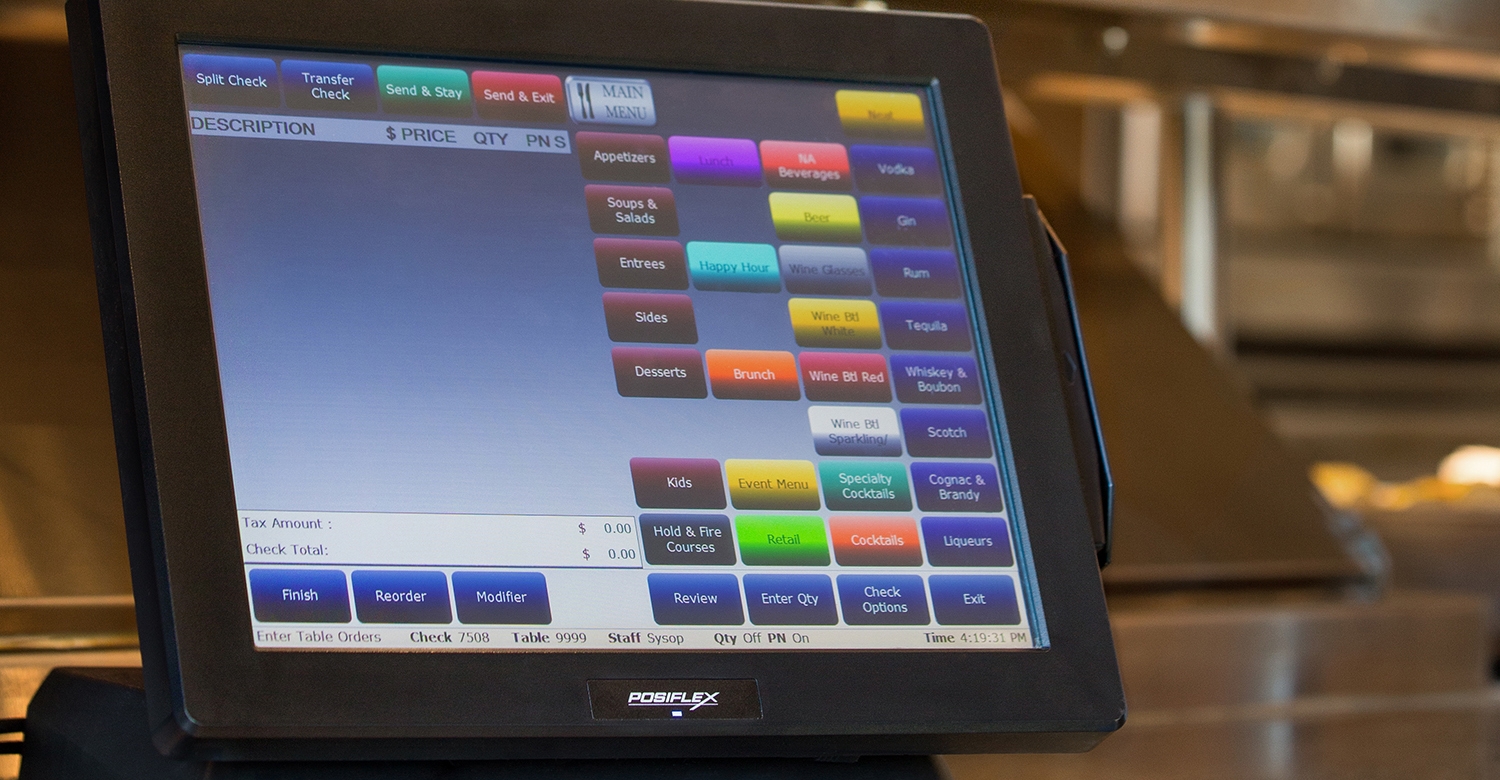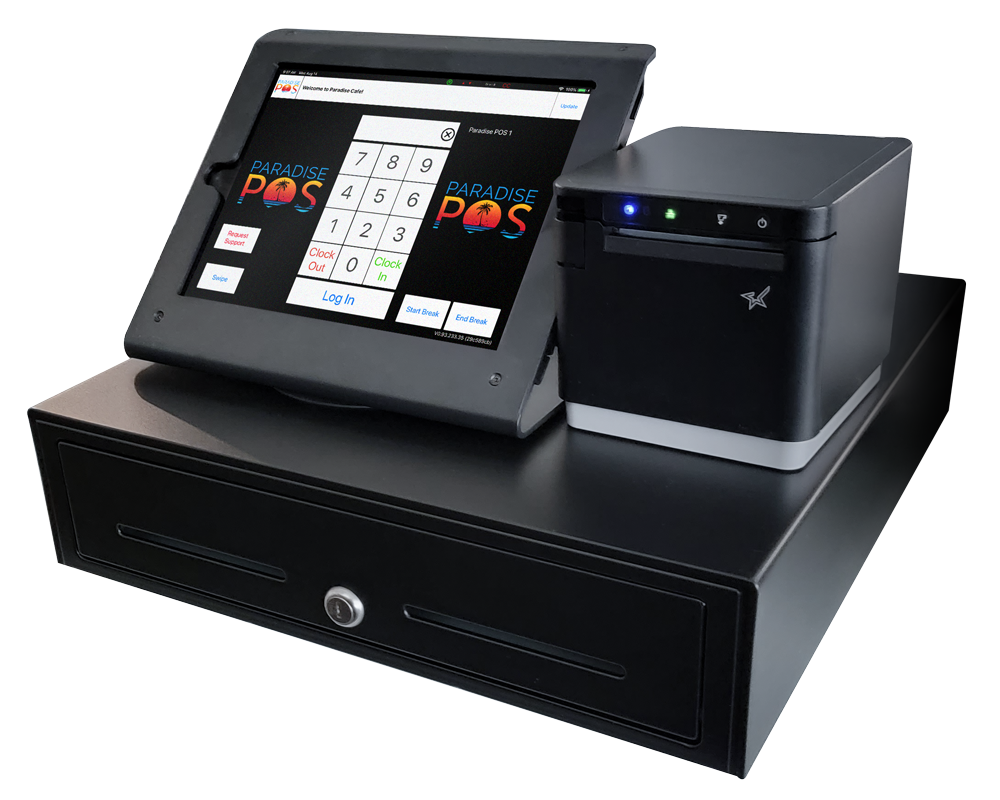Not known Details About Point Of Sale
Not known Details About Point Of Sale
Blog Article
All About Pos

Restaurant POS: Retail Point-Of-Sale Solutions Streamline Transactions
The smart Trick of Pos Software That Nobody is Discussing

Hardware Parts of a Point of Sale System What makes a POS system tick? It's not just software; the hardware plays a starring role. Consider it as the body to the software's brain. Without the best hardware, even the most advanced POS software website is simply a quite face. Important POS Hardware So, what are the must-haves? Let's break it down. The main processing system, typically a computer system or tablet, is the heart of the operation. The monitor or touchscreen display permits personnel to communicate with the system. A barcode scanner accelerate the checkout procedure. Remember the days of manually getting in each code? The dependable invoice printer offers customers with a record of their purchase. A cash drawer keeps your money safe and organized. A card reader enables consumers to pay with credit or debit cards. Diving Deeper: Beyond the Fundamentals But wait, there's more! Depending on your business, you might require specialized hardware. A restaurant may integrate kitchen area printers to relay orders, while a retail shop might utilize label printers for item tagging. Ever question how your regional bakery immediately prints those delicious-looking labels? Choosing the Right Hardware: A Balancing Act Selecting the ideal hardware isn't just about purchasing the most costly equipment. It's about finding the sweet spot between functionality, toughness, and spending plan. A small company just starting out may select a more basic setup, while a high-volume retailer will need robust, high-performance devices. Is it better to buy brand-new or used? Consider your alternatives thoroughly. A new system provides the most current technology and warranty defense, but a reconditioned system can save you cash. The Future of POS Hardware What does the future hold? Anticipate to see even more integration with mobile devices, biometric scanners for employee authentication, and advanced analytics dashboards showed on larger, clearer screens. Imagine a world where stock is instantly upgraded in real-time as items are scanned-- a world where you can track your best-selling item from throughout the world. The possibilities are limitless, and the hardware is continuously evolving to fulfill the demands these days's services. Are you ready to update your point of sale system?
Software Characteristics and Capabilities: The Heart of Your POS System
Ever enjoy a seasoned barista move through a hectic early morning rush? Their trick isn't just caffeine; it's a seamless dance with their POS system. The software application is the conductor of your company symphony, orchestrating everything from sales to stock. However what notes should you be listening for? What abilities truly matter in today's market?
Inventory Management: Beyond Counting Beans
Forget spreadsheets that haunt your dreams. Modern POS systems use real-time inventory tracking, alerting you when your stock of artisanal coffee beans dips precariously low. Think about it as a digital guardian angel, preventing those uncomfortable "Sorry, we're out!" minutes to customers. What if you could likewise anticipate need based on historic data? Numerous systems now provide forecasting tools, an effective weapon against overstocking and lost sales. This assists avoid the predicament of running out of popular items or collecting excess stock of slow-moving items, both of which can constrain cash flow and space.
Sales Reporting and Analytics: Decoding the Data
Sales information is the brand-new gold, and your POS system is the miner. Forget simply knowing how much you sold today. Dive deep into the data to discover patterns, identify your best-selling items, and comprehend customer behavior. Which menu item sets completely with the day-to-day special? Which promo resonated most with your clientele? These insights are not just intriguing; they're actionable intelligence. Without dependable sales reporting, browsing the complexities of organization decision-making becomes like sailing without a compass, increasing the opportunity of mistakes and missed opportunities.
Consumer Relationship Management (CRM): Structure Bridges, Not Walls
Remembering a regular consumer's name and favorite order is charming, but scaling that individual touch is tricky. POS systems with CRM capabilities allow you to track consumer purchase history, preferences, and even birthdays. Imagine automatically providing a discount rate on their birthday-- a small gesture that promotes commitment and motivates repeat business. There is the possible snag of bad information quality, which can lead to incorrect client profiles and inadequate marketing efforts.
Payment Processing: Streamlining the Transaction
The checkout experience can make or break a sale. Seamless integration with various payment techniques-- charge card, mobile wallets, even copyright-- is non-negotiable. Can your system handle split payments? Does it offer protected tokenization to safeguard client data? A clunky payment process is like hitting a sour note in your company symphony, potentially disrupting the entire efficiency. Guaranteeing compatibility with developing payment technologies and adherence to security standards are paramount for maintaining consumer trust and operational performance.
Staff Member Management: Keeping the Group in Sync
From clocking in and out to managing approvals and tracking performance, staff member management features simplify operations and enhance responsibility. Is scheduling a headache? Many POS systems provide incorporated scheduling tools, optimizing staffing levels based on forecasted need. A typical challenge that is frequently overlooked is the difficulty of incorporating staff member management performances with payroll systems, which can lead to mistakes and ineffectiveness in wage estimations.
Advanced Characteristics: Leveling Up Your Operations
- Table Management: Perfect for restaurants, this feature allows you to visualize your dining space, track table status, and handle appointments.
- Commitment Programs: Reward your finest consumers and motivate repeat organization with incorporated commitment programs.
- Online Ordering Integration: Effortlessly incorporate your POS system with online buying platforms to broaden your reach.
Selecting the ideal POS system is about more than simply functionality; it's about finding a partner that can grow with your organization. Consider your current needs, prepare for future growth, and do not be scared to ask the hard questions. The ideal software can transform your company from a chaotic cacophony into a harmonious work of art.
Industry-Specific POS System Applications
Think about the regional bakeshop, bustling with morning clients yearning fresh croissants. A generic POS system might handle transactions, however can it manage complex dishes, track active ingredient stock, or automatically change production schedules based upon sales information? Probably not. That is where the charm of industry-specific POS systems shines.
Restaurants and Hospitality
For dynamic restaurants, speed and precision are paramount. How lots of times have you seen servers handling orders, modifications, and splitting expenses, all while attempting to provide exceptional service? A dining establishment POS system enhances these procedures, enabling table management, cooking area order tickets, and even online ordering integration. These systems frequently consist of functions like ingredient-level stock tracking, essential for managing food costs and reducing waste. Ever question why your favorite meal is sometimes not available? It might come from a lack of appropriate inventory management.
- Table Management
- Kitchen Order Tickets
- Online Ordering Integration
- Ingredient-Level Stock Tracking
Retail Solutions
Retail, with its diverse inventory and client interactions, requires a different set of tools. Picture a boutique clothing shop struggling to monitor sizes, colors, and seasonal collections utilizing a basic checkout system. An industry-specific retail POS system provides functions like barcode scanning, client commitment programs, and in-depth sales reporting. These systems can even integrate with e-commerce platforms, offering a smooth omnichannel experience for clients. Did you know some retail POS systems can forecast future sales trends based on historic data? Now that is powerful!
The Perils of a Mismatch
Selecting the incorrect POS system can create considerable functional difficulties. A clothes store utilizing a dining establishment POS, for instance, would discover it unsuitable for managing stock with sizes and colors. The lack of correct reporting and analytics might result in misinformed buying choices and lost profits. The outcome might be similar to trying to fit a square peg in a round hole.
Key Considerations
Picking an industry-specific POS system requires cautious evaluation. Think of your service's distinct needs and operational workflows. Does the system incorporate with existing software application? Does it use the needed reporting capabilities? Is it scalable to accommodate future development? A well-chosen POS system is not simply a transaction tool; it's a tactical property that can drive efficiency, improve customer complete satisfaction, and eventually, enhance your bottom line. Keep in mind, it is an investment in your service's future, not simply an expense.
Security Considerations for Point of Sale Systems
Ever heard the tale of the mom-and-pop store that lost whatever because of a single, neglected security flaw in their POS system!.?. !? It's a cautionary tale, and it highlights a crucial aspect typically overshadowed by the allure of fancy functions and streamlined operations. The reality is, a POS system is just as great as its security. What excellent is a system that crunches numbers in a flash if it enables bad guys to swipe client's information simply as rapidly?
The Vulnerability Minefield
The digital landscape is a battleground. Every POS system, regardless of size or elegance, is a possible target. Are you truly got ready for the threats hiding around the corner? The genuine pinch comes when you discover that your out-of-date software has a gaping hole that hackers can exploit, turning your business into an unwitting accomplice in identity theft. The trouble is that hackers are crafty and are always changing their methods.
Typical Security Spaces and Specialist Tips
- Weak Passwords: "Password123" isn't cutting it. Usage strong, distinct passwords for all POS system accounts and change them regularly. Two-factor authentication is a must.
- Unsecured Networks: Your Wi-Fi is like leaving the front door open. Protect your network with strong file encryption (WPA3 if possible) and consider a different network for your POS system.
- Outdated Software: Software suppliers patch security holes all the time. Stopping working to upgrade resembles inviting difficulty. Set up automatic updates or schedule routine maintenance.
- Employee Training: Your staff is your first line of defense. Train them to recognize phishing attempts, secure passwords, and report suspicious activity.
Data File Encryption: Your Shield Against the Dark Arts
Believe of data encryption as a secret code. It scrambles sensitive details, like charge card numbers, making it unreadable to unapproved users. Without encryption, your clients' monetary details are like sitting ducks, ripe for the selecting by cybercriminals. It's not simply about protecting your clients; it has to do with securing your credibility and avoiding hefty fines.
PCI Compliance: The Rulebook You Can't Disregard
If you accept credit cards, you're bound by the Payment Card Market Data Security Requirement (PCI DSS) It's a set of security standards developed to protect cardholder data. Failing to comply can lead to fines, charges, and even the loss of your ability to process charge card payments. It's a headache, yes, however it's a needed one. Believe of PCI compliance as the expense of doing service in the digital age.
Consider this: every deal processed through your point of sale is a potential entry point for destructive actors. By executing robust security steps, you're not simply protecting your company; you're safeguarding your consumers' trust and making sure the long-lasting practicality of your operations. The security of your POS system isn't just a technical concern; it's an organization important. It requires constant watchfulness, proactive steps, and a dedication to staying ahead of the curve.